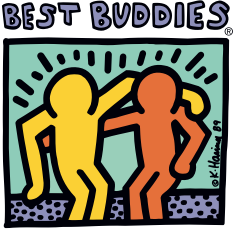
Dyslexia, also known until the 1960s as word blindness, is a disorder characterized by reading below the expected level for one's age. Different people are affected to different degrees. Problems may include difficulties in spelling words, reading quickly, writing words, "sounding out" words in the head, pronouncing words when reading aloud and understanding what one reads. Often these difficulties are first noticed at school. The difficulties are involuntary, and people with this disorder have a normal desire to learn. People with dyslexia have higher rates of attention deficit hyperactivity disorder (ADHD), developmental language disorders, and difficulties with numbers.

Asperger syndrome (AS), also known as Asperger's, is a former neurodevelopmental disorder characterized by significant difficulties in social interaction and nonverbal communication, along with restricted and repetitive patterns of behaviour and interests. The syndrome is no longer recognised as a diagnosis in itself, having been merged with other disorders into autism spectrum disorder (ASD). It was considered to differ from other diagnoses that were merged into ASD by relatively unimpaired language and intelligence.

Cerebral palsy (CP) is a group of movement disorders that appear in early childhood. Signs and symptoms vary among people and over time, but include poor coordination, stiff muscles, weak muscles, and tremors. There may be problems with sensation, vision, hearing, and speaking. Often, babies with cerebral palsy do not roll over, sit, crawl or walk as early as other children of their age. Other symptoms include seizures and problems with thinking or reasoning, which each occur in about one-third of people with CP. While symptoms may get more noticeable over the first few years of life, underlying problems do not worsen over time.
Dyscalculia is a disability resulting in difficulty learning or comprehending arithmetic, such as difficulty in understanding numbers, learning how to manipulate numbers, performing mathematical calculations, and learning facts in mathematics. It is sometimes colloquially referred to "math dyslexia", though this analogy can be misleading as they are distinct syndromes.
The Camphill Movement is an initiative for social change based on the principles of anthroposophy. Camphill communities are residential communities and schools that provide support for the education, employment, and daily lives of adults and children with developmental disabilities, mental health problems, or other special needs.
Developmental disability is a diverse group of chronic conditions, comprising mental or physical impairments that arise before adulthood. Developmental disabilities cause individuals living with them many difficulties in certain areas of life, especially in "language, mobility, learning, self-help, and independent living". Developmental disabilities can be detected early on and persist throughout an individual's lifespan. Developmental disability that affects all areas of a child's development is sometimes referred to as global developmental delay.

Agnews Developmental Center was a psychiatric and medical care facility, located in Santa Clara, California.
"The normalization principle means making available to all people with disabilities patterns of life and conditions of everyday living which are as close as possible to the regular circumstances and ways of life or society." Normalization is a rigorous theory of human services that can be applied to disability services. Normalization theory arose in the early 1970s, towards the end of the institutionalisation period in the US; it is one of the strongest and long lasting integration theories for people with severe disabilities.

Best Buddies International is an American nonprofit 501(c)(3) organization. It consists of volunteers that create opportunities for people with intellectual and developmental disabilities (IDD). The program's main purpose is to allow volunteers to be paired up with a buddy with an intellectual and developmental disability and provide them with a friend or a mentor. Best Buddies is the world's largest organization dedicated to ending the social, physical and economic isolation of the 200 million people with IDD. It is an international movement that has spread to over 54 countries worldwide.

Learning disability, learning disorder, or learning difficulty is a condition in the brain that causes difficulties comprehending or processing information and can be caused by several different factors. Given the "difficulty learning in a typical manner", this does not exclude the ability to learn in a different manner. Therefore, some people can be more accurately described as having a "learning difference", thus avoiding any misconception of being disabled with a lack of ability to learn and possible negative stereotyping. In the United Kingdom, the term "learning disability" generally refers to an intellectual disability, while difficulties such as dyslexia and dyspraxia are usually referred to as "learning difficulties".

Intellectual disability (ID), also known as general learning disability in the United Kingdom and formerly mental retardation (MR), is a generalized neurodevelopmental disorder characterized by significantly impaired intellectual and adaptive functioning. It is defined by an IQ under 70, in addition to deficits in two or more adaptive behaviors that affect everyday, general living. Intellectual functions are defined under DSM-V as reasoning, problem‑solving, planning, abstract thinking, judgment, academic learning, and learning from instruction and experience, and practical understanding confirmed by both clinical assessment and standardized tests. Adaptive behavior is defined in terms of conceptual, social, and practical skills involving tasks performed by people in their everyday lives.

The Journal of Autism and Developmental Disorders is a peer-reviewed medical journal focusing on all aspects of autism spectrum disorders and related developmental disabilities. It was established in 1971 under the name Journal of Autism and Childhood Schizophrenia and is published by Springer Science+Business Media. The editor-in-chief is Fred R. Volkmar.
Disability abuse is when a person with a disability is abused physically, financially, sexually and/or psychologically due to the person having a disability. Disability abuse has also been considered a hate crime. The abuse is not limited to those who are visibly disabled such as wheelchair-users or physically deformed such as those with a cleft lip, but also those with learning, intellectual, and developmental disabilities as well as mental illnesses.

The Kennedy Krieger Institute is a nonprofit, 501(c)(3) tax-exempt, Johns Hopkins affiliate located in Baltimore, Maryland, that provides in-patient and out-patient medical care, community services, and school based programs for children and adolescents with learning disabilities, as well as disorders of the brain, spinal cord, and musculoskeletal system. The Institute provides services for children with developmental concerns mild to severe and is involved in research into various disorders, including new interventions and earlier diagnosis.
Global developmental delay is an umbrella term used when children are significantly delayed in their cognitive and physical development. It can be diagnosed when a child is delayed in one or more milestones, categorised into motor skills, speech, cognitive skills, and social and emotional development. There is usually a specific condition which causes this delay, such as Fragile X syndrome or other chromosomal abnormalities. However, it is sometimes difficult to identify this underlying condition.
Hattie Larlham is an American nonprofit organization that creates opportunities for more than 1,600 children and adults with intellectual and developmental disabilities in the state of Ohio. Services provided encompass medical, work training and employment, recreational, educational, and residential, catering to both children and adults.
The Vineland Adaptive Behavior Scale is a psychometric instrument used in child and adolescent psychiatry and clinical psychology. It is used especially in the assessment of individuals with an intellectual disability, a pervasive developmental disorder, and other types of developmental delays.

Lydia X. Z. Brown is an American autistic disability rights activist, writer, attorney, and public speaker who was honored by the White House in 2013. They are the chairperson of the American Bar Association Civil Rights & Social Justice Disability Rights Committee. They are also Policy Counsel for Privacy & Data at the Center for Democracy & Technology, and Director of Policy, Advocacy, & External Affairs at the Autistic Women & Nonbinary Network. As of May of 2022, they are running as a candidate for a seat in the Maryland House of Delegates, District 7A.
Mary Meyers Rosenfield was an American community leader, active in special education and services for people with developmental disabilities in Texas.

People with disabilities are at greater risk of contracting COVID-19 and have higher rates of mortality than non-disabled populations. This is especially true for people with intellectual and developmental disabilities, individuals who reside in care facilities, and women with disabilities. People with disabilities are at greater risk of experiencing mental health issues related to the pandemic, such as feelings of loneliness and isolation. They may be at greater risk of domestic violence and abuse during the pandemic. People with disabilities are more likely to experience unemployment as a result of the pandemic and may require changes to the types of accommodations they require for work. Children with disabilities are experiencing disruptions to their educational programming. Remote learning poses a host of challenges for children with disabilities, including disruptions to physical and occupational therapies and access to assistive technologies.










